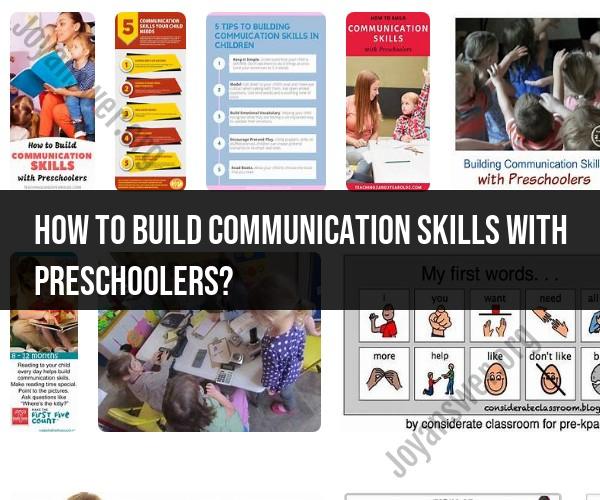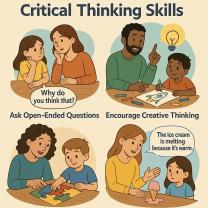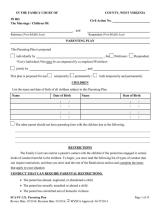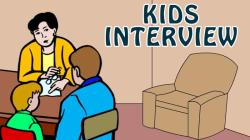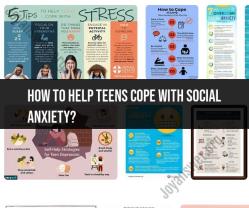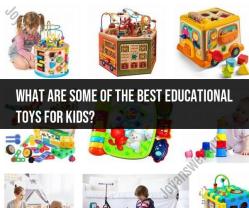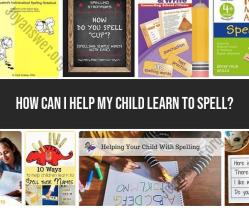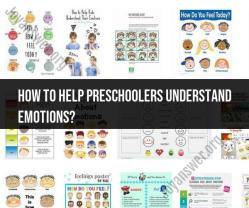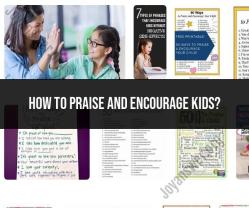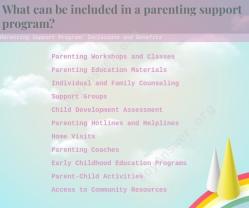How to build communication skills with preschoolers?
Building communication skills with preschoolers is crucial for their social and academic development. Here are practical tips to help foster strong communication skills in preschool-aged children:
1. Be a Good Listener:
- Model active listening by giving your full attention when your child speaks. Encourage them to share their thoughts, ideas, and feelings without interruptions.
2. Engage in Conversations:
- Initiate conversations with open-ended questions that encourage your child to express themselves. For example, ask about their day, their favorite activities, or their feelings.
3. Expand Vocabulary:
- Introduce new words and concepts through reading books, discussing daily experiences, and exploring the world together. Encourage your child to ask questions when they encounter unfamiliar words.
4. Encourage Storytelling:
- Invite your child to tell stories or describe their experiences. Listen attentively, and ask follow-up questions to encourage elaboration.
5. Read Together:
- Reading with your child is one of the most effective ways to build vocabulary and comprehension skills. Choose a variety of age-appropriate books and engage in interactive reading by asking questions about the story.
6. Role-Play:
- Encourage pretend play and role-play scenarios that involve conversations. This can help your child practice communication skills and develop social understanding.
7. Play Games:
- Board games, card games, and verbal games like "I Spy" or "20 Questions" promote communication skills while having fun.
8. Articulate Clearly:
- Model clear and articulate speech for your child. Correct any pronunciation errors gently without criticizing.
9. Use Visual Aids:
- Utilize visual aids like flashcards or picture books to reinforce vocabulary and concepts.
10. Be Patient:- Allow your child time to express themselves, even if they take longer to formulate sentences or thoughts. Avoid rushing them when they are speaking.
11. Encourage Empathy:- Teach your child to recognize and validate others' feelings. Discuss how different situations may make people feel and how to respond with empathy.
12. Communication-Friendly Environment:- Create an environment where your child feels comfortable expressing themselves without fear of judgment or criticism.
13. Teach Politeness:- Emphasize polite communication by saying "please" and "thank you." Teach your child to greet people and respond to questions with respect.
14. Use Open Body Language:- Demonstrate the importance of non-verbal communication by using open body language, maintaining eye contact, and showing interest during conversations.
15. Limit Screen Time:- Reduce screen time and encourage face-to-face interactions, which are essential for developing social communication skills.
16. Socialize:- Provide opportunities for your child to interact with peers through playdates, preschool, or community activities. Socializing with other children helps them practice communication skills.
17. Speech Therapy:- If you have concerns about your child's speech or language development, consider consulting a speech therapist for professional guidance and support.
18. Be a Positive Role Model:- Children learn by observing. Be a positive role model for effective communication by using respectful and clear communication in your own interactions.
19. Praise Efforts:- Celebrate your child's communication efforts, even if they make mistakes. Positive reinforcement encourages them to continue developing their skills.
20. Be Patient and Supportive:- Every child progresses at their own pace. Be patient, supportive, and encouraging as your child works on their communication skills.
Building communication skills in preschoolers is a gradual process that requires patience and consistent practice. By creating a supportive and communication-rich environment, you can help your child develop strong verbal and non-verbal communication skills that will benefit them throughout their lives.
